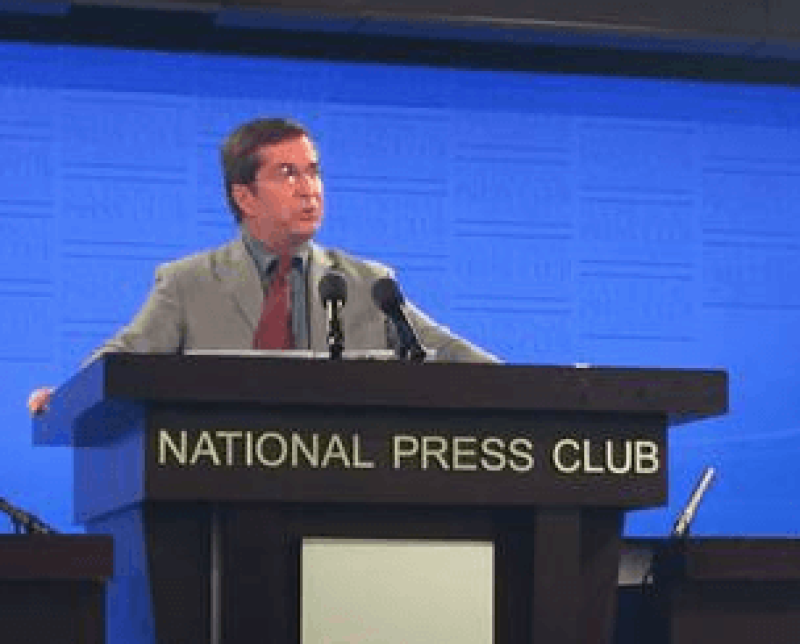In Canberra, Australia to address the National Press Club, Genetic Literacy Project Executive Director Jon Entine said while GM technology was ‘not a silver bullet’, it was one of the tools the world needed if it was going to double food production by 2050.
“We need organic agriculture and some of the information that we learn from care-taking for our soil, we need agro-ecological innovations, but we also need modern technology,” he said, “and that includes genetic engineering.”
“If we didn’t have synthetic fertilizers we could probably support a world population of 3-4 billion. We’re close to double that now, so if we were to cut out synthetic fertilizers which were introduced in the green revolution, half the world population would have to die off.
“Well, we don’t want half the world population to die off. We need technology, we just need to deploy it in a way that is ecologically sensible, and biotechnology opens up a lot of doors.”
Entine said that in the United States, however, there had been a slow but recognizable shift in the perception in favor of GM foods in recent years.
“Two years ago, the overwhelming majority of newspapers and the population was very, very pro-mandatory labelling, and very concerned with whether or not GMOs were safe,” he said.
“Over the past two years we’ve had a major shift in public opinion, particularly among the more educated elite.
Every major liberal [left-leaning] newspaper, what we call the progressives, have been the ones that have been most skeptical [about biotechnology], I think because of the fear that it’s a big business enterprise.
That’s changed. There’s been a real shift in favor of the safety of GMOs.
“The New York Times, the Washington Post, the Boston Globe, the LA Times, the Chicago Tribune, well known science publications like Scientific American, and organizations such as the American Medical Association, the American Association for the Advancement of Science, the National Academy for Sciences – these are all very, very well known progressive organizations.
“Every one of them have come out for the safety of GMO foods and for opposing mandatory labelling [of GMO foods] on the grounds that labelling as it’s been proposed in the US would be very deceptive for a whole wide range of reasons.
“That’s a sea change. That wouldn’t have happened a few years ago.”
View Jon Entine’s speech before the National Press Club of Australia:
View online: here































